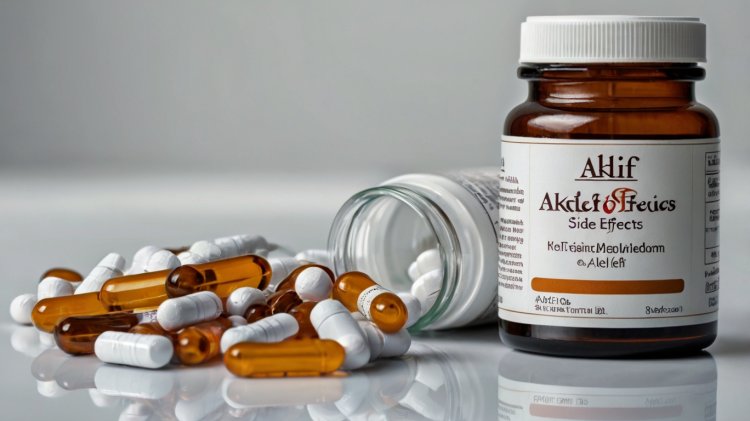Aklief Side Effects: Common Issues and Expert Tips for Management
Aklief can cause a range of side effects, from common ones like redness, dryness, and peeling to more severe reactions such as burning, swelling, or blistering. If you’re using Aklief, it’s important to know how to manage these symptoms. Simple steps like sticking to a good skincare routine, using gentle moisturizers, and knowing when to reach out to a healthcare professional can make a big difference. Also, don’t forget to protect your skin—avoid too much sun, use sunscreen, and always follow your dermatologist’s advice to keep things safe and effective.

Understanding Aklief Side Effects and How to Manage Them
Aklief (trifarotene) is a topical cream prescribed for treating acne in adults and certain children. While it is effective, it may cause side effects ranging from mild to severe. This article explores the common, mild, and serious side effects of Aklief and offers tips for managing them.
Common Side Effects of Aklief
Aklief can lead to several common side effects, including:
-
Mild skin irritation
-
Itchy skin
-
Sunburn
-
Skin rash
-
Skin swelling
These side effects are typically temporary and resolve within a few days or weeks. However, if they persist, worsen, or become too challenging to tolerate, consult your doctor for advice on coping mechanisms or alternative treatments.
Mild Side Effects
Mild side effects of Aklief may include:
-
Mild skin irritation
-
Itchy skin
-
Sunburn
-
Skin rash
-
Skin swelling
-
Dry skin
-
Skin discoloration
These side effects are usually manageable and transient. If they persist or interfere with your daily activities, speak with your healthcare provider.
Serious Side Effects
Though rare, Aklief can cause serious side effects. Contact your doctor immediately if you experience any of the following:
-
Increased sensitivity to ultraviolet (UV) light
-
Severe skin irritation
-
Signs of an allergic reaction, such as swelling or difficulty breathing
In case of life-threatening symptoms, call 911 or your local emergency number.
Managing Specific Side Effects
Skin Irritation
Skin irritation, including symptoms like stinging, burning, redness, or scaling, is a common issue. These symptoms are more likely to occur during the first four weeks of treatment and typically improve over time.
What You Can Do:
-
Use a moisturizer recommended by your doctor to alleviate irritation.
-
Avoid skin products with alcohol or harsh chemicals.
-
If irritation becomes severe, consult your doctor about discontinuing Aklief or switching treatments.
Sunburn
Exposure to sunlight or tanning beds can lead to sunburn while using Aklief. Symptoms may include sensitivity, pain, and blistering.
What You Can Do:
-
Use sunscreen with an SPF of 15 or higher.
-
Wear protective clothing, such as wide-brim hats and long-sleeved shirts.
-
Limit direct sun exposure, especially during peak hours.
-
Seek medical advice if sunburn is severe.
Allergic Reactions
Although allergic reactions were not reported in clinical studies, they are possible. Symptoms may range from mild rashes to severe swelling and breathing difficulties.
What You Can Do:
-
For mild symptoms, contact your doctor for guidance.
-
For severe reactions, seek emergency medical care immediately.
Precautions for Aklief
Before starting Aklief, inform your doctor about your health history. Aklief may not be suitable if you have:
-
Other skin conditions, such as eczema
-
A history of allergic reactions to similar medications
-
Plans for pregnancy or are currently breastfeeding
Always follow your doctor’s instructions to minimize risks and maximize the benefits of this treatment.
FAQs About Aklief
1. Can I use Aklief if I have eczema?
It is not recommended to use Aklief if you have eczema or other pre-existing skin conditions without consulting your doctor.
2. How can I prevent skin irritation while using Aklief?
Using a gentle moisturizer and avoiding products with alcohol or abrasive ingredients can help prevent irritation.
3. Should I stop Aklief if I experience side effects?
Mild side effects may not require discontinuation. However, consult your doctor if the side effects are severe or persistent.
4. Is Aklief safe during pregnancy?
Discuss with your doctor if you are pregnant or planning to become pregnant, as Aklief’s safety during pregnancy has not been fully established.
5. What sunscreen is best to use with Aklief?
Choose a broad-spectrum sunscreen with at least SPF 15 or higher to protect your skin while using Aklief.









